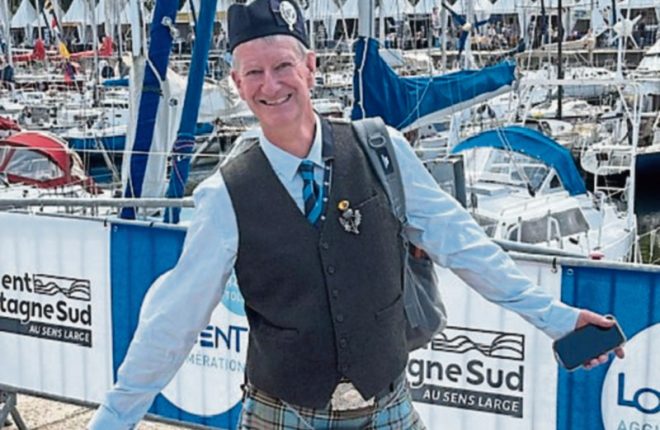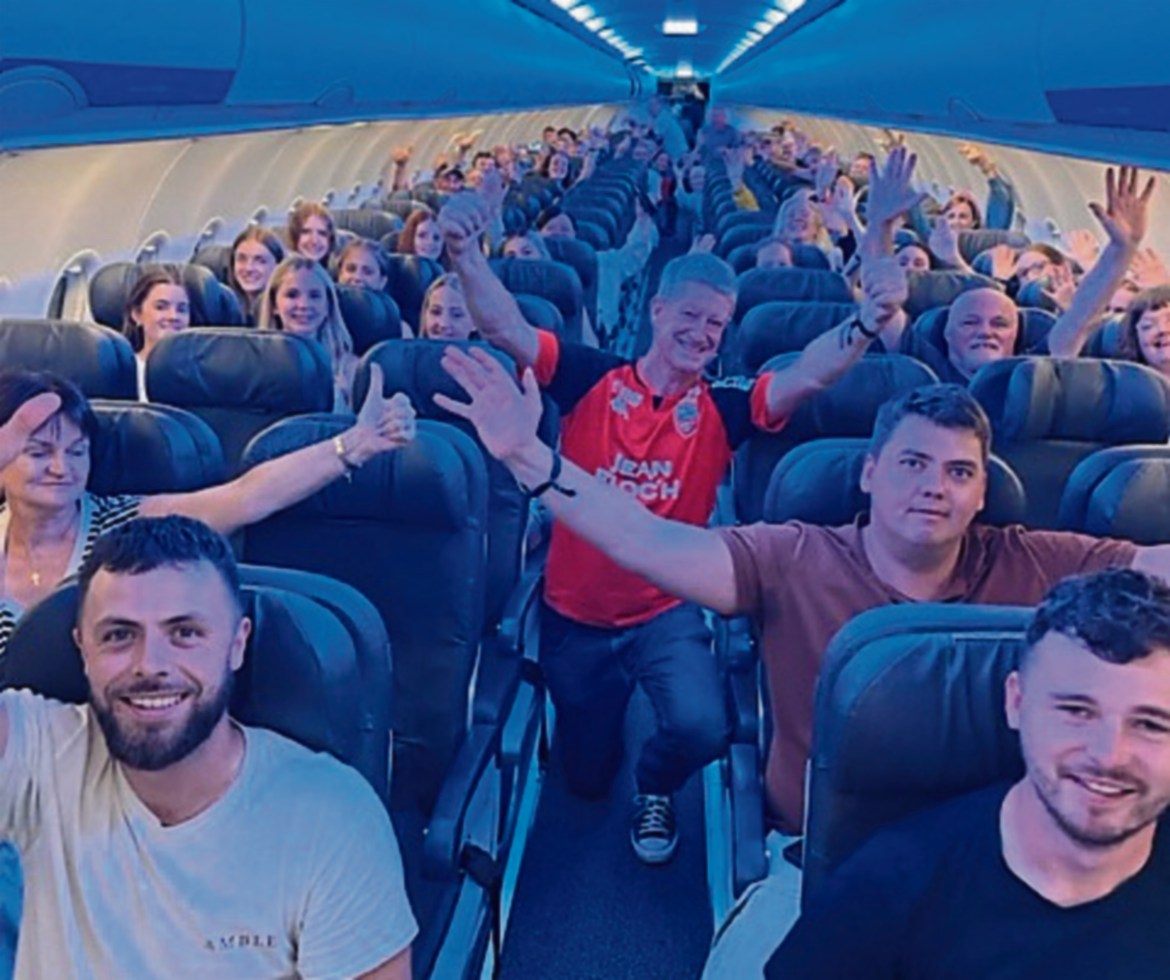By Róise Collins
THE delegation who represented Ireland at the recent Festival Interceltique de Lorient have returned from yet another hugely successful stint in southern Brittany.
From sean-nós and sea shanties to sport and cinema, Lorient which describes itself as the capital of the Inter-Celtic world, was a hive of Celtic culture and celebration.
Beyond the many sell out concerts the naval town itself was also bustling. Marques serving traditional delicacies lined the streets and on every corner revellers danced alongside the lively buskers.
“No words can truly describe Lorient, you have to be there,” said Reuben Ó Conluain, a Magheraroarty man who has been head of the Irish delegation for over 20 years.
In his volunteer role, Reuben drafted more than 130 artists from across the country to represent Ireland, many of them from Donegal.
This year’s theme was “Our American Cousins”, highlighting Celtic heritage among the diaspora across the Atlantic, from Quebec to Arizona.
“For 500 years there have been floods of Europeans going over there and landing on the east coast and then spreading on, and the music amongst the diaspora there is thriving.”
The hugely successful festival brought together thousands of artists from Ireland, Scotland, Wales, Brittany, Galicia, Asturias, Cornwall and the Isle of Man, along with members of the Celtic diaspora spread across the globe, from Australia to Argentina.
Two years ago, Ireland took the spotlight and over 950,000 people descended on the town in southern Brittany. This year was also hugely successful, with similar numbers of festival-goers.
There is a special connection with Ireland, as Lorient is fittingly twinned with Galway, which is currently celebrating its 50th year.
“The atmospheres of the two towns are so similar; it’s just the perfect marriage.”
He spoke of their shared love for speaking their native tongues, as well as common ground in their beaches, fishing industries, musical traditions and easy-going atmosphere.
Reuben says that despite differences in language or skin colour, all the Celtic nations share the same “joie de craic”, borrowing from the famous French phrase joie de vivre.
As one of dedicated 1,700 festival volunteers, Rueben is in the midst of what he describes as “dislorientation”. Walking around in a daze, trying to get Lorient out of his system, while tackling a hefty load of washing.
Included in the laundry pile was Reuben’s kilt, which he wore as he flew the flag for Ireland during the Grande Parade des Pays Celtes.
The massive parade, marking the start of the 10-day affair, took over three hours to pass through packed streets lined with over 80,000 people. A further 10,000 waited at Le Stade du Moustoir, where the parade concluded.
The football field which is home to FC Lorient, also hosted Horizons Celtiques over five nights.
Ardara native Naoise Mac Cathmhaoil opened one of the nights with a haunting sean-nós performance. He was joined by fellow delegation members, including Lorient regulars Planxty O’Ruairc and the Hugh O’Conor Memorial Pipe Band from Tucson, Arizona.
Both the parade and the show were broadcast to millions of viewers on French television.
A more pared-back evening also stood out to Reuben, where he sang traditional songs alongside other Celtic artists.
Despite being performed in different languages, the same themes emerged – from broken hearts to emigration – something Reuben found particularly poignant.
“We have these wonderful traditional singing styles that are quite similar.”

Reuben Ó Conluain dressed in his kilt ahead of the Grande Parade des Pays Celtes.
Beyond the great singers, what moved him were the great listeners, people who truly wanted to hear the history and context behind the songs.
But perhaps the highlight, maybe of his entire 40 years at the helm, was a special night organised by the Irish embassy.
During the event, Reuben and Tara Gi, who runs the session in The Shamrock in Falcarragh, were joined by Alan Stivell for a performance of the traditional Donegal song Siún Ní Dhuibhir.
“That was a huge moment for me to perform with the Bob Dylan of Celtic music.”
Among the Donegal delegates were The Friel Sisters, whose performance was exceptionally well received. Huartan, a group with strong Donegal links, also “went down a bomb.”
Known for their high-energy ‘tradtronica’ style, blending traditional Irish music with electronic sounds, Huartan surprised the crowd with an act of solidarity with Palestine, which was warmly received by the large audience.
Colm Mac Con Iomaire also delivered a moving speech about Ireland’s historical understanding and empathy toward the ongoing famine and oppression in Palestine. His band Bláth na hÓige features talented young musicians including Donegal Gaeltacht natives Cathal Ó Curráin and Megan Nic Ruairí.
Local Donegal artist Kim Sharkey’s exhibition was another major success, as was the screening of Kneecap.
After the film, Reuben hosted a Q&A session where curious attendees from around the world asked questions about the background and context of the film.
The delegations trip culminated in a final hurrah on their flight from Nantes.
Onboard the chartered flight was air hostess Áine, whose aunt Bríd Rodgers is from Tory Island. She and the rest of the Aer Lingus staff not only invited but requested that the artists take out their instruments for what Reuben described as a “celestial Céilí”.
Traditional Irish music was accompanied by Irish dancers high-kicking at over 30,000 feet in the air, while Naoise Mac Cathmhaoil performed a sean-nós song over the intercom.
Next year’s Festival Interceltique de Lorient will take place from July 31 to August 9, with Cornwall as the featured theme.










